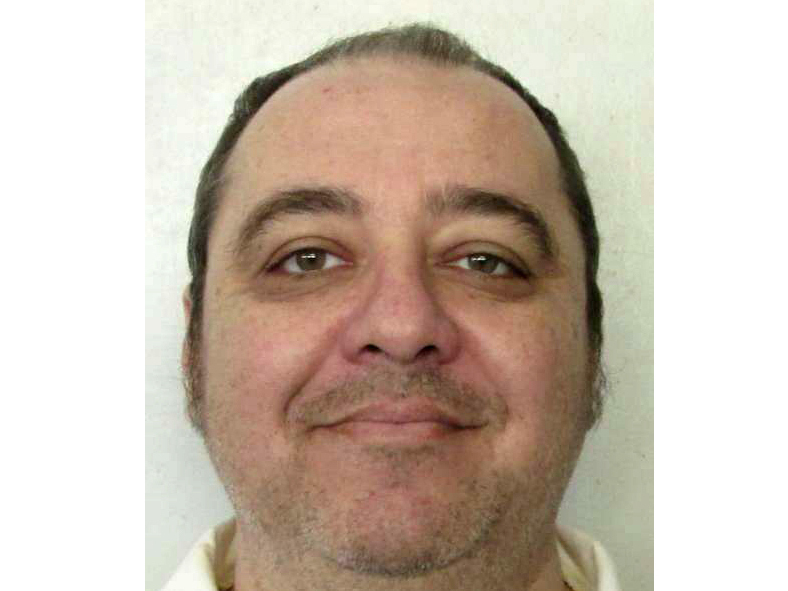
This undated photo provided by Alabama Department of Corrections shows inmate Kenneth Eugene Smith, who was convicted in a 1988 murder-for-hire slaying of a preacher's wife. Alabama plans to put him to death by nitrogen hypoxia, an execution method that is authorized in three states but has never been used, later this week. Alabama Department of Corrections via AP /AP hide caption

This undated photo provided by Alabama Department of Corrections shows inmate Kenneth Eugene Smith, who was convicted in a 1988 murder-for-hire slaying of a preacher's wife. Alabama plans to put him to death by nitrogen hypoxia, an execution method that is authorized in three states but has never been used, later this week.
Alabama Department of Corrections via AP /APAlabama has already tried to execute Kenneth Smith once. On the night of November 17, 2022, he was scheduled to be put to death by lethal injection, but workers couldn't find a vein to place an IV. They tried for an hour, during which, he was jabbed with needles in his arms, hands and collar bones.
Smith, one of only two living people in the U.S. to have survived an execution attempt, faces death again. On Thursday, the state of Alabama plans to execute him using a method it calls nitrogen hypoxia. It has never been tested in the U.S.
NPR's Ari Shapiro talks to investigative correspondent Chiara Eisner about Smith's execution, and what led Alabama to use a new and untested execution method.
Email us at
This episode was produced by Connor Donevan, Megan Lim and Noah Caldwell. It was edited by Barrie Hardymon and Courtney Dorning. Our executive producer is Sami Yenigun.

 Live Radio
Live Radio